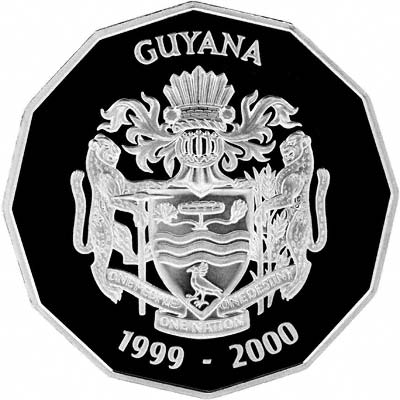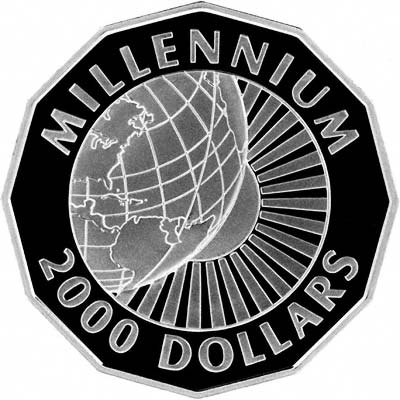| The Very Highest Quality Information... |
| Guyana Coins |
|
| ||||||||||||||||||||||||||||||||||||

| ||||||||||||||||||||||||||||||||||||
 | ||||||||||||||||||||||||||||||||||||
Discovery and Early Colonisation
The Guyana coastline was originally discovered by Christopher Columbus in 1498 and claimed for Spain, however, the lack of resources and better opportunities elsewhere meant that the Spanish did little to settle the area, and so in 1616 the Dutch (perpetual enemies of the Spanish) settled the coast in the guise of the Dutch West India Company and established a trading settlement, Essequibo. Other settlements were also established along the river valley of the Essequibo further inland. Berbice, a separate colony, was established in 1627, and Demerara was established in 1741, which itself became a separate colony in 1773. Demerara became famous for its sugar, and what we know today as demerara sugar was named after this Dutch colony.
The Sugar plantations were run by slave labour, with all its customary brutalities and cruelties. Slave rebellions frequently took place, and the most famous of these was the Berbice Slave Uprising of 1763-1764 led by a slave called Cuffy. The rebellion was crushed with the aid of British and French troops, who were concerned that the rebellion might spread to their own colonies.
British Colonisation
British settlers began to arrive in the Demerara from 1746, encouraged by the Dutch authorities eager to develop the economy of the economy. This policy of encouragement was so successful that by the time that war broke out between the Netherlands and Britain in 1781 (part of the American War of Independence) British subjects already constituted the majority of the population within the colony of Demerara.
Consequently, the British occupied the Dutch colonies of Bernice, Essequibo and Demerara, until they were evicted again by a Franco-Dutch force.
In 1792, the Dutch united Demerara and Essequibo as a single colony (although Bernice remained separate). During the French Revolutionary and Napoleonic Wars, the Netherlands allied itself with Napoleon, and the British invaded and occupied the Dutch colonies on several occasions. Finally, in 1814, the Dutch possessions of Bernice and the United Colony were ceded to Britain, and in 1831, the United Colony and Bernice were merged to form British Guiana.
British Rule
One of the most pressing factors in British Guiana was the continued existence of slavery. Although the slave trade had been abolished in 1807, those already in bondage remained so. In 1823, a slave revolt broke out, which although easily defeated provided a catalyst to speed up the vile institution's abolition. The sentencing to death of an English clergyman, Reverend John Smith, for helping to incite the revolt (and who died in prison before the sentence would either be carried out or commuted) inspired outrage at home in Britain and strengthened the abolitionist's claim to the moral high ground over the slave owners in the colonies. Slavery was finally abolished in 1834, and the process of liberation completed in 1838.
The abolition of slavery led to many of the former slaves drifting away from the plantations, and the resulting labour shortage led to the importation of thousands of indentured Indian labourers to work on them. Many of whom decided to stay once their contract was finished.
Dispute with Venezuela
In the late 1850s, gold was discovered in an area that had for many years been disputed between Venezuela and British Guiana. The Americans imposed themselves as arbitrators on the issue, but it was nevertheless decided that 94% of the disputed territory should belong to British Guiana; this was begrudgingly accepted by the Venezuelans in 1905.
Push Towards Sel-Rule
A series of constitutional reforms from the 19th century onwards granted more autonomy to the people of British Guiana. An executive council to legislate for the colony was established in 1891, although a secret ballot was not introduced until 1897, and the majority Afro-Guyanese population did not constitute the majority of the electorate until 1909.
The enlistment of many Afro-Guyanese in the British Armed Forces during First and Second World Wars led to demands for the respect they felt was owed to them for their contribution to the war efforts. Finally, in the 1950s, the major political parties of today's Guyana, the People's Progressive Party (PPP and the People's National Congress where established in 1950 and 1957 respectively).
Forbes Burnham
The Socialist PNC administration came to power during the colony's general election of 1964. Led by Forbes Burnham. Burnham led British Guiana to independence in 1966, and became its first independent Prime Minister. From then on, he quickly degenerated into a tyrant, passing a 'National Security Act' that gave the police powers of search, seizure or arrest for virtually any reason unchecked and unrestrained. He rigged elections, murdered opponents and upon turning Guyana into a republic (of the banana kind) in 1970 he attempted to establish close relations with North Korea, the USSR and Cuba to model Guyana after them. He even began styling himself as 'Comrade Leader'. He nationalised several foreign-owned companies and drove out foreign investment and domestic talent.
One of his madder schemes involved him attempting to stimulate domestic food production by banning the importation of basic foodstuffs such as flour and cooking oil, which were not produced in large enough quantities domestically to replace demand, leading to food shortages throughout Guyana.
In this atmosphere of dystopian socialism, the American 'Reverend' Jim Jones, a lunatic who had founded his own religious personality cult combining a strange blend of pseudo-Christianity and communism, decided to settle his community in a new town, called (egotistically, but not unnaturally) 'Jonestown'.
In 1978, Jones ordered 900 followers (men, women and children) to commit suicide along with himself. An incident that whilst not a direct part of the Burnham regime's official policies, nevertheless added to an apocalyptic sense of madness and death that was happening in Guyana under his rule.
In Burnham's Guyana, corruption, arbitrary arrest, lunacy and state sponsored thuggery ran wild and free like a lion in its prime on the African savannah. Burnham's reign of terror drove out talent, capital and brought nothing but abject misery and hardship to his people until he died under anaesthetic for routine throat surgery in 1985.
Since Burnham's Rule
Since the demise of Forbe's Burnham, Guyana began to move back towards true democracy and the rule of law. In 2011, Bharrat Jagdeo became the first leader of independent Guyana to leave office under a constitutional obligation for a two-term limit in power. He was succeeded by Donald Ramotar in December 2011.
Coinage of Guyana
As with much of the rest of South America and the Caribbean, the first coins used in Guyana were those of the Spanish Dollar. Following Dutch colonisation of the area, the Dutch Guilder circulated. In 1839, Britain attempted to introduce sterling currency to the colony, based on an official exchange rate of 4/2d to the dollar. However, this was largely unsuccessful. Although British coins did circulate, the Dollar continued to be used as the primary unit of account based on the official exchange rate.
Sterling coins were finally replaced in 1955 by coins of a new decimal dollar currency, consisting of 1, 5, 10, 25 and 50 cents. The 1 and 5 cents were struck in nickel brass and the rest in cupro-nickel. In 1996, copper-plated steel 1 and 5 dollar coins were introduced, in addition to a heptagonal shaped nickel-plated steel 10 dollar coin.
For Sale and Wanted
If you are interested in coins from Guyana please see our product index:-
Guyanese Coins
| ...at the Lowest Possible Price |
|
32 - 36 Harrowside, Blackpool, Lancashire, FY4 1RJ, England.
Telephone (44) - (0) 1253 - 343081 ; Fax 408058; E-mail: info@chards.co.uk The URL for our main page is: https://24carat.co.uk |
Web Design by Snoop |